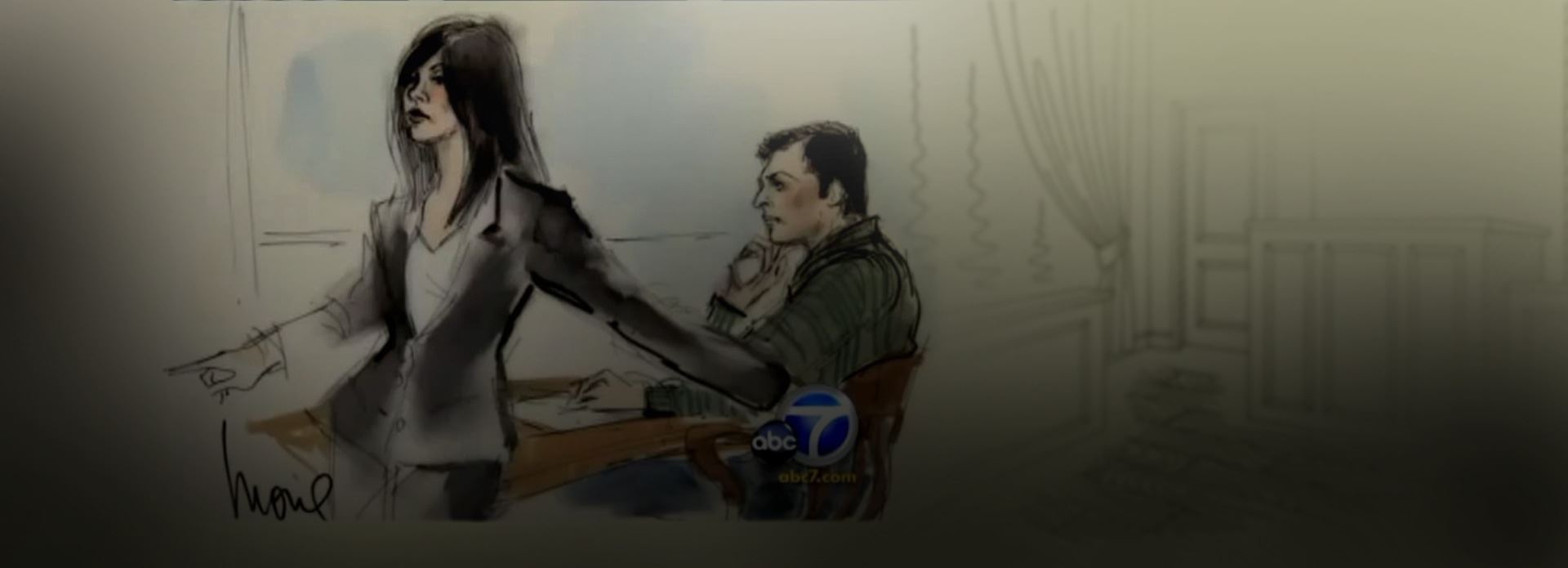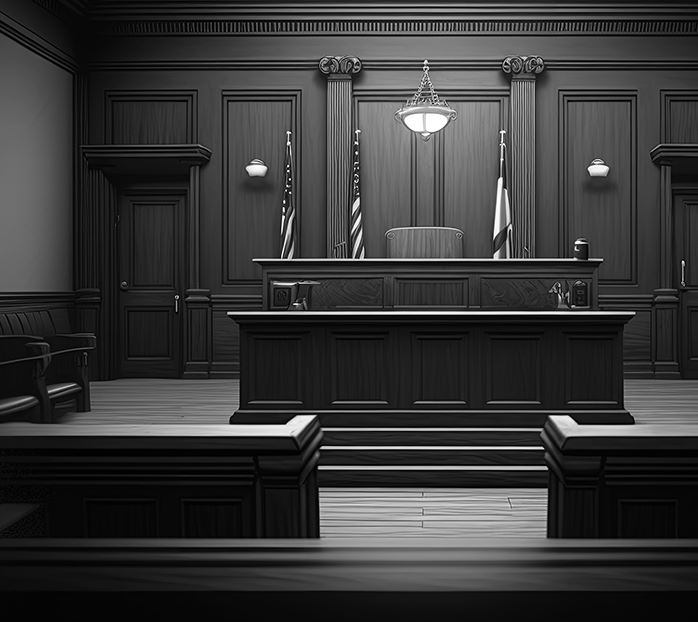
CRIMINAL TRIAL PROCESS
IN CALIFORNIA
Understand Your Criminal Defense Case
If you have been arrested for a crime, no doubt you may be curious about what you will be facing. Despite the complexity of our country's legal system, most criminal trials are conducted similarly. Our attorney explains how the trial is held and what each step of the process entails. Understanding the criminal trial system not only prepares you for what is to come, but can also help you get a better grasp of your own case and the defense strategies that will be used to help protect your rights.
For more information about the criminal process, contact The Law Offices of Jacqueline Goodman.

-
""Tremendous thanks and a grateful heart""- Former client's parents
-
"I have so much respect and admiration for her - and the women in her office"- Caleigha C.
-
"I can't say enough good things!"- Travis H.
-
"Choose her to represent you in the orange county area"- Elizabeth E.
-
"Thank you Ms Goodman and team!!"- Nick K.
-
"If you are looking for someone that is going to put in all of their effort and fight for the outcome you want, choose her."- Former Client
-
"She took the time to understand our concerns an worries."- Joe G.
-
"I felt like I was getting represented by a superstar attorney. She'll run circles around any DA."- Marcus W.
SELECTING A JURY
Except in rare cases, the first step of the trial process is selecting jury members. The selection is conducted with the judge, the plaintiff's attorney, and the defendant's attorney. They ask the potential jurors a serious of questions pertaining to the case, including questions about ideological opinions and life experiences.
A potential juror may not be selected for a couple of reasons:
- The judge excused the potential juror due to their answers
- The defense or prosecution may exclude an individual through use of "peremptory challenges" and challenges "for cause"
If a potential jury member gives answers that seem biased or to favor a certain side unfairly, the prosecution or defense may request that individual not be used in the trial. There are only a certain number of jurors that may be excluded. Once both parties are content with the unbiased jurors that have been selected, the trial may begin.

Attorney Jacqueline Goodman has more than 20 years of experience in criminal defense. As the President of California Attorneys for Criminal Justice and the standalone vice chair of the Sex Offenses division of the National Association of Criminal Defense Lawyers, she has been at the forefront of criminal law in California and across the nation.
Schedule an initial consultation at The Law Offices of Jacqueline Goodman in Orange County. Everyone deserves a chance to defend themselves.
WITNESS TESTIMONY AND CROSS-EXAMINATION
One major piece of evidence in a criminal trial is the witness testimony. Both the prosecution and the defense can call upon witnesses to support their case.
The witness testimony process is conducted as followed:
- The witness is sworn in after being called to the stand.
- The party that called the witness to the stand questions him or her. The direct examination is used to extract information that supports the party's position.
- After the examination, the opposing party has a chance to cross-examine the witness. They attempt to weaken the testimony by pointing out holes and discredit the witness or account.
- When the cross-examination is completed, the original party has a chance to re-direct examination. They can ask questions that will repair the damage done to their case by the cross-examination.
Each side is given the opportunity to present and challenge evidence. When neither side has any more evidence to present or refute, both sides "rest" and the trial moves into closing arguments.


-
State Bar Certified Specialist
-
CA Criminal Trial Lawyer of the Year
-
Past President of CA Attorneys for Criminal Justice
-
National Co-Chair Sex Crimes Defense
-
National Chair of Decarceration
CLOSING ARGUMENTS
Very similar to opening statements, the prosecution and the defense are able to provide statements that summarize the case and the evidence they provided. It is the final chance for both parties to present statements to convince the jury in their favor.
DELIBERATION AND VERDICT
During the final stage, the judge provides the jury with instruction and they deliberate. The jury attempts to agree on whether or not the defendant is guilty or not guilty. Depending on the case, the deliberation process can last anywhere from a couple of hours to a couple of weeks.
In California, if the jury is unable to unanimously agree on a guilty or not guilty verdict (this is also known as a "hung jury") a retrial will occur with a different jury.


REAL PEOPLE. REAL RESULTS.
-
CASE DISMISSEDCASE DISMISSED
OC FELONY CASE
Case dismissed in its entirety at preliminary hearing. Felony evading, Felony possession of body armor by strike felon, and various other charges.
12/4/2024
+ - -
 CASE DISMISSEDCASE DISMISSED
CASE DISMISSEDCASE DISMISSEDCHILD ENDANGERMENT / CRUELTY
Penal Code 273a(b) Child endangerment/cruelty.
+ - -
 CASE DISMISSEDCASE DISMISSED
CASE DISMISSEDCASE DISMISSEDCHILD MOLESTATION
Child molestation: Felony.
+ - -
 CASE DISMISSEDCASE DISMISSED
CASE DISMISSEDCASE DISMISSEDPROBATION VIOLATION
PC 1203.2 Committing a new crime or violating any term or condition of probation.
+ - -
CASE DISMISSEDCASE DISMISSED
OC FELONY CASE
Suspect caught on video confesses. Alleged victim, eager to prosecute prior to prelim, AND the record of arrest ordered destroyed.
12/19/2024
+ - -
 CASE DISMISSEDCASE DISMISSED
CASE DISMISSEDCASE DISMISSEDATTEMPTED MURDER OF POLICE OFFICER
Los Angeles Arrest Pre-filing representation on Attempted murder of police officer, assault with a deadly weapon upon a police officer.
+ -



